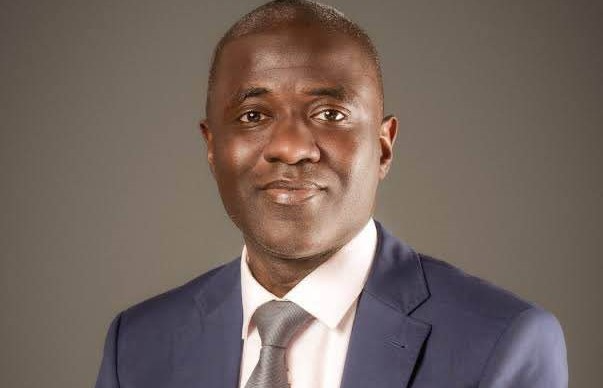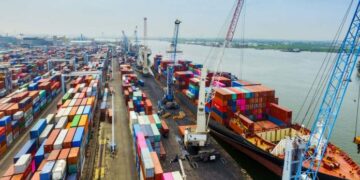Over the past year, Nigeria’s ICT and telecoms landscape has seen a mixed bag of advancements and difficulties. Need to say the administration of President Bola Ahmed Tinubu undoubtedly has a comprehensive plan in place to modernise Nigeria’s telecom industry.
However, despite a strong commitment to addressing critical issues in Nigeria’s ICT sector, stakeholders in the ICT space have posited that challenges remain that hinder the full realisation of these efforts.
Recall that President Bola Ahmed Tinubu, through the Renewed Hope Agenda, draws all Nigerians to a more promising outlook. Inherent in his agenda is the pledge to embolden and support the youth and women by harnessing emerging sectors such as the digital economy.
In delivering this vision, the Honourable Minister of Communications, Innovation, and Digital Economy, Dr. Bosun Tijani unveiled a blueprint appropriately titled “Accelerating our Collective Prosperity through Technical Efficiency“ to support Nigeria‘s economic growth by enhancing productivity, facilitated by digital innovation.
Acknowledging the criticality of resilient telecommunications infrastructure to a robust digital economy, Dr. Tijanis Strategic Agenda 2023- 2027 sets targets to achieve a 50 percent improvement in Quality of Service (QoS) by the end of 2024; to boost Nigeria’s broadband penetration rate to 70 percent by the end of 2025; to deliver data download speed of 25Mbps in urban areas and 10Mbps in rural areas by the end of 2025; to provide coverage for, at least, 80 percent of the country’s population, especially the underserved and unserved populations by the end of 2026; to reduce the gap of unconnected Nigerians in rural areas from 61 percent to less than 20 percent by 2027; and to secure between 300 percent to 500 percent increase in broadband investment by the end of 2027.
Drawing from the Strategic Agenda of the Ministry, the Executive Vice Chairman and Chief Executive Officer of the Nigerian Communications Commission, (NCC) Dr. Aminu Maida, has placed three Strategic Focus Areas for the Commission: The Consumers, the Industry/ Licensees, and the Government.
Maida‘s approach to delivering on President Bola Tinubu’s Renewed Hope Agenda comes from the recognition that each of these stakeholders has a unique perspective and different, occasionally paradoxical expectations of the Commission. His goal is to forge a path that carefully balances each stakeholder’s needs while meeting their expectations.
Consider the Consumers who are central to Maida’s focus for example. His approach focuses on ensuring that they receive an enhanced Quality of Experience, beyond the narrow and very technically-evaluated Quality of Service. Quality of experience takes into account all touch points along the consumer’s journey in using telecom services from selection, through onboarding, usage, support and even off-boarding.
This means that consumers are empowered to make the right network selection, enjoy a seamless onboarding into the network of their choice, enjoy quality service at fair costs, receive responsive customer service, and enjoy protected off-boarding where they choose to leave the network. To address consumer complaints on data depletion, the Commission has directed Mobile Network Operators (MNOS) to conduct an independent audit of their billing systems and is concluding a consultation process to simplify tariff plans. These initiatives would provide enhanced transparency to the consumer.
The Commission, under Maida, rather than taking a national outlook on data collection for quality-of-service delivery, has adopted an approach where more granular data is collected from operators and analysed to determine the quality of service at very small, local levels, to allow the deployment of optimised solutions or regulatory actions where needed.
On the side of the industry and Licensees of the Commission, Dr. Maida’s focus is aimed at forging a resilient industry and enhancing the delivery of regulatory services. Since he came on board, the Commission has shown commitment to tackling industry debt issues more seriously. It has also embarked on critical advocacy initiatives to address long-term challenges in the sector, including advocacy for designating telecom infrastructure as Critical National Infrastructure, as well as successfully persuading over six states to waive Right of Way (RoW) fees, even as he initiates discussions with more states. The Commission, under Dr. Maida’s leadership, is equally engaging with the Presidential Committee on Fiscal Policy and Tax Reforms towards addressing multiple taxation issues in the telecoms sector.
To ensure that the industry is in line with current realities, the Commission is also undertaking a review of its extant Regulatory Instruments and Licensing Frameworks. For instance, Quality of Service Regulations have been reviewed to incorporate Key Performance Indicators (KPIs) for 5G and other participants that are critical to the Quality of Service.
By achieving expected QoS KPIs, high-speed internet connectivity, and forging a resilient and innovative telecommunications industry, the Commission is actively supporting the Ministry’s vision of boosting economic growth and productivity through technological innovation, delivering on the promise of Renewed Hope for all Nigerians.
Next 365 days
Stakeholders have however applauded these great initiatives while appealing to the government to put more efforts into tackling issues of forex, multiple taxation, and damages of critical infrastructures, among others, to sustain the progress made in the sector.
Science, Technology, and Innovation (STI) policy advisor and founder, of Jidaw.com, Jide Awe applauded the launch of the 3MTT program, which aims to train three million Nigerian youths in digital technology and essential skills. “This is a high-visibility initiative related to fostering digital skills and job creation, contributing to the much-needed economic diversification. It has created a level of awareness about IT job opportunities. The economic outlook is also promising in that respect,” he affirmed.
Ongoing investments aimed at enhancing network coverage and service quality as well as encouraging digital infrastructure investments such as the landing of Meta’s deep-sea cable in Nigeria that is expected to significantly boost internet capacity and connectivity, Awe told LEADERSHIP, while also commending the enactment of the Nigeria Data Protection Act, which is a crucial step towards building a trustworthy and sustainable digital economy that fosters technological advancements and innovation.
“The support for startups and innovation and developments through the implementation of the Nigerian Startup Act appears aimed to foster a robust startup ecosystem, crucial for driving technological innovation and entrepreneurship. Organising policy initiatives on Artificial Intelligence (AI) such as the AI Strategy Workshop and the National AI Research Grant Scheme demonstrates a recognition of the potential of leveraging emerging technologies to address our developmental challenges. However, to fully harness this potential, we need to further raise awareness, expand education, increase research efforts, and integrate ethics considerations,” he stated.
While these policies are impressive, their benefits hinge on actual implementation with tangible results for Nigeria, Awe affirmed, adding that technology and policies are not simply for show or an end in themselves. “Therefore, it’s crucial to reduce bureaucratic bottlenecks and the “digital transformation with the analog culture within the government that hinders efficient and effective policy implementation. For instance, effective implementation of the Nigerian Startup Act, which would provide more funding opportunities and resources and incentives for startups, is required,” he stated.
Harping on the challenges to be tackled in the next 365 days, Awe said these challenges are considerable and require focused and sustained efforts.
For instance, high internet costs remain a barrier for many Nigerians, limiting access and further entrenching the country’s digital divide. Strategies, public-private partnerships, and incentives are needed to improve data and infrastructure affordability, encourage rural infrastructure expansion, enhance competition in the telecom space, and develop an inclusive digital economy, Awe said, even as he posited that meeting the National Broadband Plan (NBP) targets for internet connectivity rollout is crucial.
Another challenge is that unreliable electricity is also hindering the growth of the digital economy, the founder of Jidaw.com said, adding that generator power is inefficient and unsustainable to power a digital economy. “The inadequate power supply in Nigeria hampers the growth of both tech innovation initiatives and ventures. Improving the overall power supply is essential to supporting ICT infrastructure and enhancing tech initiatives,” he advised.
To improve policy execution and create a more innovation-friendly and business-friendly environment, strengthening the capacity of government agencies involved in policy implementation is crucial, Awe said, adding that, “There is a need for a political will and stakeholder inclusive digital culture in governance. In particular, state governors should be encouraged to see the long-term value of removing barriers like a hike in RoW fees.
“There is a need for comprehensive oversight and evaluation mechanisms to monitor and evaluate the progress of tech policies to guide necessary adjustments and ensure the effectiveness of policies and initiatives. Some ICT companies are not immune from the rising inflation and added energy costs (due to the removal of fuel subsidies) that have impacted logistics, transportation, consumer spending,, and investment. Creative support and funding policy interventions should be promoted for the ICT sector.”
Extortionist right-of-way charges, multiple taxation, insecurity of telecom infrastructure, the indiscriminate shutting down of telecommunication sites, and bureaucratic bottlenecks continue to hinder business development for telecom companies, the head of operations at the the Association of Licensed Telecommunications Operators of Nigeria (ALTON), Gbolahan Awonuga, told LEADERSHIP, adding that, this, in turn, slows down infrastructure development and technological adoption. Making telecoms a critical national infrastructure is long overdue to protect infrastructure investments, he affirmed.
Suggestions for Bosun, Maida
In addition to addressing the challenges mentioned, stakeholders have however urged the minister and NCC’s boss to promote and encourage a „local content,“ innovation culture, and mindset in education and society as a whole.
“They should play a leadership role in promoting linkages and collaborations among the education, private sector, research, and government sectors to drive innovation, research, and development to solve societal challenges. This could include continuous professional development, the development of future-of-work capabilities, and updated curricula for the education system. A national system of innovation is more impactful than the present system of silos. To achieve this, inclusive, national, systemic, and innovative approaches are required.
“It is important that the innovative culture in society extends to regulation not just products and services. Bosun and Maida should prioritize innovative regulation that balances the fostering of innovation and ensuring fairness and competition in the sector. Such a regulatory approach should attract foreign investment in the tech sector. Regulation must be able to adapt to changing circumstances and foster innovation. They should ensure that tech policies are simple, clear, consistent, and long-term. These policies should encourage innovation and provide a predictable environment for businesses. Unclear or inconsistent regulations can create uncertainty for businesses and discourage investment and innovation.
“Stakeholder engagement should be used by government to be transparent about ICT/Telecom policies and their goals. Not a one-way approach but enabling stakeholders to actively communicate, provide feedback, and contribute to policy making and implementation. Develop strategies with stakeholders, not with them.
“While prioritizing long-term development in the ICT sector, they should also find ways to leverage the increasing digital consumer adoption and mobile internet penetration. This can be achieved by promoting the use of digital services in all spheres. By doing so, they can address real needs and create tangible benefits for society, such as reduced cost of living, increased job creation, development of business opportunities, and expanded learning opportunities. They should seek international collaborations with nations, global tech companies, and institutions to attract foreign investment, additional resources, expertise, and opportunities for Nigeria‘s tech sector, all while aligning with Nigeria‘s strategic interests,” they advised.











